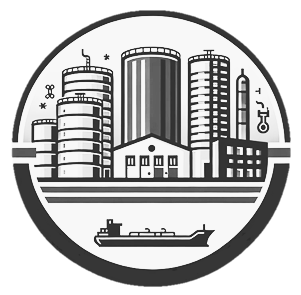What are Incoterms?
INCOTERMS are a set of three-letter standard trade terms most commonly used in international contracts for the sale of goods. It is essential that you are aware of your terms of trade prior to shipment.
CIF (Cost Insurance & Freight)
Cost Insurance and Freight (CIF) named port of destination Incoterms® 2010 — This term is to be used only when carriage is by sea or inland waterway. Under CIF, the seller is responsible for delivering the goods on board the vessel at the port of shipment and covering the cost of freight and insurance to the named port of destination. The risk of loss or damage to the goods transfers from the seller to the buyer once the goods are on board the vessel.
CFR (Cost & Freight)
Cost and Freight (CFR) named port of destination Incoterms® 2010 — This rule is intended for use only when carriage is by sea or inland waterway. Under CFR, the seller is responsible for delivering the goods on board the vessel at the port of shipment and paying the costs and freight necessary to bring the goods to the named port of destination. However, the risk of loss or damage to the goods transfers from the seller to the buyer once the goods are on board the vessel.
FOB (Free on Board)
Free On Board (FOB) named port of shipment Incoterms® 2010 — There is a significant change from the meaning of this term in former revisions of Incoterms. Under the 2010 rules, the seller is required to deliver the goods on board the vessel nominated by the buyer at the named port of shipment or procure the goods already so delivered. The risk of loss or damage to the goods passes to the buyer once the goods are on board the vessel.
DDP (Delivered Duty Paid)
Delivered Duty Paid (DDP) named place of destination Incoterms® 2010 — This term may be used whatever mode or modes of transport may be used. Under DDP, the seller is responsible for delivering the goods to the named place of destination in the buyer’s country, covering all costs and risks associated with transporting the goods, including export and import duties, taxes, and customs clearance. The seller’s responsibility ends once the goods are delivered to the buyer at the agreed destination.
FAS (Free Alongside Ship)
Free Alongside Ship (FAS) named port of shipment Incoterms® 2010 — The seller delivers the goods when they are placed alongside the vessel nominated by the buyer at the named port of shipment. This means that the seller is responsible for all costs and risks up to that point, including export clearance. Once the goods are alongside the vessel, the risk of loss or damage transfers to the buyer.
DAP (Delivered at Place)
Delivered at Place (DAP) named place Incoterms® 2010 — This term may be used whatever mode or modes of transport will be used. Under DAP, the seller is responsible for delivering the goods to the named place of destination, ready for unloading. The seller bears all risks and costs associated with transporting the goods to the named place, except for import duties and taxes, which are the buyer’s responsibility. The risk of loss or damage to the goods transfers from the seller to the buyer once the goods are available for unloading at the destination.
DAT (Delivered at Terminal)
Delivered at Terminal (DAT) named place Incoterms® 2010 — This term may be used regardless of the mode or modes of carriage to be used. Under DAT, the seller is responsible for delivering the goods, unloaded from the arriving means of transport, at the named terminal at the destination. The risk of loss or damage to the goods transfers from the seller to the buyer once the goods have been unloaded at the terminal
CIP (Carriage & Insurance Paid)
Carriage and Insurance Paid (CIP) to named place Incoterms® 2010 — This term may be used whatever mode or modes of transport will be used. Under CIP, the seller is responsible for delivering the goods to the carrier at the place of shipment and paying for the carriage and insurance to the named place of destination. The seller must procure minimum insurance coverage for the goods during transit. The risk of loss or damage to the goods transfers from the seller to the buyer once the goods are handed over to the first carrier.
CPT (Carriage Paid To)
Carriage Paid To (CPT) named place Incoterms® 2010 — This term may be used whatever mode or modes of transport will be used. Under CPT, the seller is responsible for delivering the goods to the carrier at the place of shipment and paying for the carriage to the named place of destination. However, the risk of loss or damage to the goods transfers from the seller to the buyer once the goods are handed over to the first carrier.
FCA (Free Carrier)
Free Carrier (FCA) named place Incoterms® 2010 — This term may be used whatever mode or modes of transport will be used. Under FCA, the seller delivers the goods, cleared for export, to the carrier or another person nominated by the buyer at the seller’s premises or another named place. The risk of loss or damage to the goods transfers from the seller to the buyer once the goods are delivered to the carrier.
EXW (EX Works)
EX Works (EXW) named place Incoterms® 2010 — This term may be used for either domestic or international trade. Under EXW, the seller is responsible for making the goods available at their premises or another named place (factory, warehouse, etc.). The buyer bears all costs and risks involved in taking the goods from the seller’s premises to the desired destination. The seller has no obligation to load the goods onto the collecting vehicle or clear them for export.
